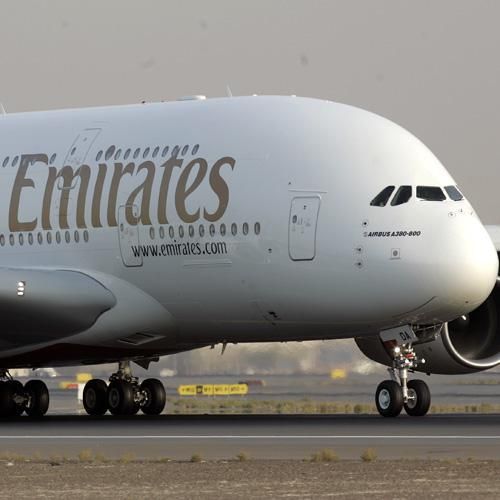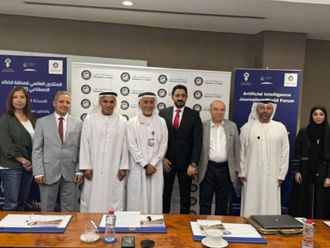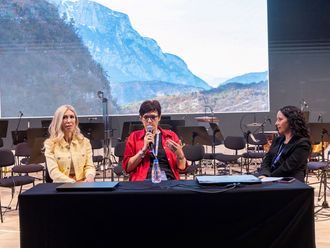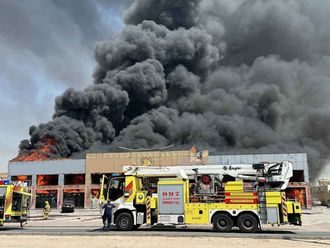Emirates' Airlines has slammed a report in an Australian newspaper that criticised the airline's management on the fatigue risk of its pilots.
In the response to the article published on Sunday in the Herald Sun, Richard Vaughan, the airline's divisional senior vice-president for commercial operations worldwide, said it had not included “objective'' data provided by the company and had quoted anonymous sources.
He said: “Emirates reiterates its absolute commitment to safety. Emirates is a world leader in the management of pilot fatigue and alertness.''
An editorial in the newspaper referring to the story said US Freedom of Information laws were used to get documents.
These included a formal complaint to US and Australian aviation authorities and internal emails between Emirates pilots and airline executives which it says “lift the lid'' on the safety issue.
The complaint, the article reports, is dated December 21, 2008 and the author says it is written on behalf of Emirates pilots and states “continuous pressure'' from the commercial department and according to their opinion, referring to pilots “flight safety is becoming increasingly impaired.''
The paper says Emirates' pilots are accusing the company of putting profits ahead of the lives of passengers and crew.
A senior pilot is quoted in an email to an executive warning: “I am very concerned that the Commercial versus Safety balance in this airline is tipping in the wrong direction. The sad thing is that in the event of the worst happening it will be the fatigued pilots who will be in the dock, dead or alive, and not the people in management.''
A second pilot complains of suffering from “micro-sleeps'' while landing aircraft.
The editorial then goes into background about previously reported incident published on April 12 when an Emirates Airbus carrying 275 passengers came within 70cm of crashing at Melbourne Airport.
The Herald Sun says the pilot had slept for only 3 1/2 hours in the previous day and was close to his maximum allowed 100 flying hours in the previous month.
However Emirates directly responded to this incident on Sunday by saying responsibility for preventing the onset of fatigue rests both on the operator and crew.
In the statement Mr Vaughan said: “The crew of EK 407 (Melbourne-Dubai, 20 March) were allocated a 24-hour layover in Melbourne - a sufficient time period to use the rest facilities provided. When it released its preliminary report on the event, the Australian Transport & Safety Bureau indicated it had not found any evidence to suggest fatigue was a causal factor.''
In May, the Herald Sun stated the newspaper spoke to three Emirates pilots who all raised serious concerns about fatigue.
It continued that the newly released US documents show that despite the concerns, the American Federal Aviation Authority has no powers to investigate Emirates, because it is a foreign carrier.
The Australian Transport Safety Bureau is investigating the Melbourne incident, but was not investigating the wider issue of pilot fatigue.
The article then calls on Australian and US aviation authorities to immediately investigate Emirates saying the carrier's planes packed with passengers and fuel overfly Australian cities.
In a strongly worded response Vaughan hit back saying the airline's Fatigue Risk Management System continuously monitors pilot alertness across a range of international destinations.
The statement said: “The system meets the regulatory requirements, and was the first to employ a Scientific Advisor on sleep research. Dr. Mark Rosekind, President of Alertness Solutions of the United States, is an ex-NASA scientist and researcher in fatigue mitigation, and his advice is a part of every FRMS study. Emirates' programmes are of value to the world's body on international aviation standards, as the airline was requested to provide technical advice on Flight and Duty Time standards during an upcoming session of the newly established panel formed by the International Civil Aviation Organisation.''
It says Emirates' Flight Time Limitation Scheme is based on international industry norms.
Pilots undergo objective scientifically accepted alertness and fatigue tests on ultra long range flights and testing of alertness during the minutes before landing and approach indicated no reduction of alertness.
The statement said: “Unlike other carriers, Emirates uses 2 Captains and 2 First Officers on its long-haul flights. Most other airlines have only 1 Captain and 2 First Officers.''
It said Emirates operates under Federal Aviation Authority's (FAA) Foreign Air Operators Certificate programme.
This means it has to meet stringent FAA requirements including oversight by the body.
It added: “The FAA notified us that they had found Emirates was in compliance with all FAA, General Civil Aviation Authority (GCAA) and internal requirements relating to flight and duty time, and safety oversight.
“Emirates has a positive and open reporting culture that helps management understand safety issues before they become significant concerns.''
Emirates slams paper for pilot fatigue report
Emirates slams paper for pilot fatigue report













